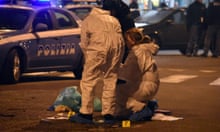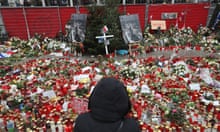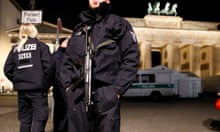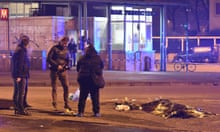Desperate and drifting, Anis Amri took the path trodden by countless other North African teenagers: an illegal boat journey to Europe in hopes of a better life. He fell into crime instead — and is now the number one suspect in the deadly Berlin truck rampage claimed by the Islamic State group.
In his impoverished Tunisian hometown, Amri’s stunned family does not know whether to defend him or disown him. One brother urged Amri to turn himself in to police.
“I want the truth to be revealed about my son. If he is the perpetrator of the attack, let him assume his responsibilities and I’ll renounce him before God. If he didn’t do anything, I want my son’s rights to be restored,” his mother, Nour el Houda Hassani, said.
Distraught neighbors are surprised that Amri is suspected of terrorism. Yet the town is all too familiar with the threat of radicalism: several of its sons, recruited by radical preachers, have died fighting in Syria and Libya.
His mother said she saw no sign that Amri had radicalised. In recent phone conversations, she said, he played Tunisian music and “asked about ordinary family news, and showed us meals he was preparing”.
“Either someone stole his papers and left them under the seat so that he would be incriminated, or they want to show that it’s this dog of the Islamic State group at the origin of this attack,” she said.
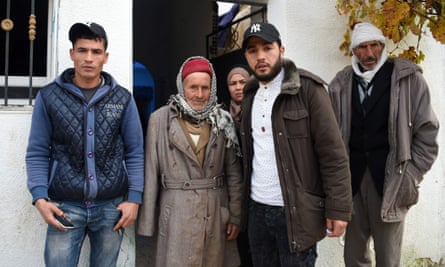
His sister Najoua insisted the family has “nothing to do with terrorism” but acknowledged that her brother was “no angel”.
After dropping out of school in eighth grade, Anis Amri drank and fell to petty theft, his mother said.
“His father and I are disabled. So he was forced to steal to emigrate and get ... goods that young people dream of,” she said.
The central town of Oueslatia, 220km (137 miles) south of the capital Tunis, is surrounded by mountains in one of the country’s poorest regions. It has especially high youth unemployment, and with no leisure activities or bars, young people gather in the fields to drink beer and wine away from their parents’ disapproving eyes.
Amri was convicted of stealing a truck in Tunisia and of burning down a migrant centre in Italy, his mother said. But he was able to work small jobs while in an Italian prison, and sent money home. Italian authorities called him a problem inmate who had to be transferred to six different Sicilian prisons for bullying other prisoners and trying to spark rebellions.
“When he got out, he called us to say that he could not find work, and he was leaving for another country,” his mother said. He tried and failed in Switzerland, so went to Germany instead.
Somewhere along the way, he appears to have been radicalised. German officials deemed Amri a potential threat and kept him under covert surveillance for six months this year. Now they say Amri’s fingerprints were found on the truck used in Monday’s attack, which killed 12 people and wounded 56. German authorities believe he drove the truck.
“Whether he did it or not, I ask him to report to the police,” his brother, Abdelkader Amri, said. “We are worried. We have no information about his location.”
Amri’s trajectory reflects the tumult in his country since he came into adulthood. He was still a teenager when he fled Tunisia as it turned from a police state into a democracy during a chaotic 2011 uprising that spread across the Arab world. But Amri’s prospects in the free world were not as rosy as he had hoped — much as Tunisia’s freedom has been rockier than many hoped, marred by violence and economic troubles.
Abdelkader Amri urged other youths to be wary of extremists.
“I want to ask Tunisian youth to be aware of this phenomenon. I want to ... ask them not to be influenced by the opinions of terrorist groups,” he said. “We are living a real misery.”
Amri last spoke to his family on Friday, they said.

